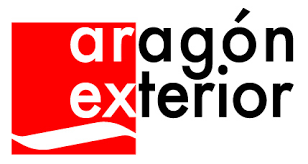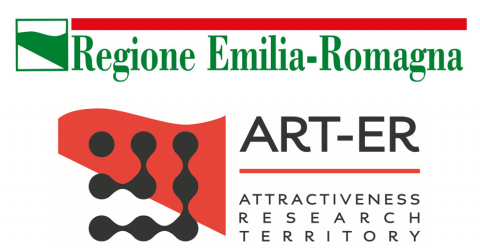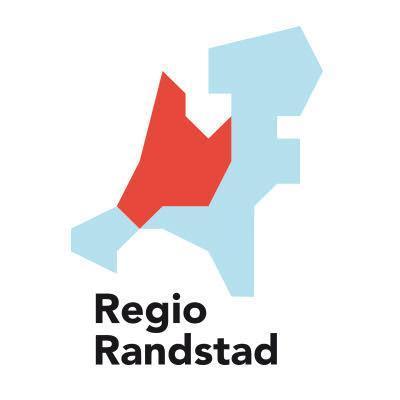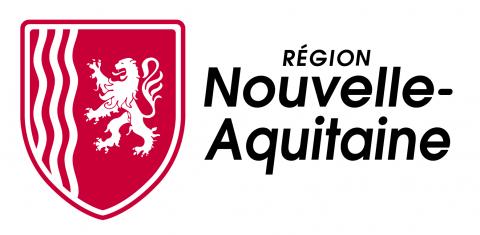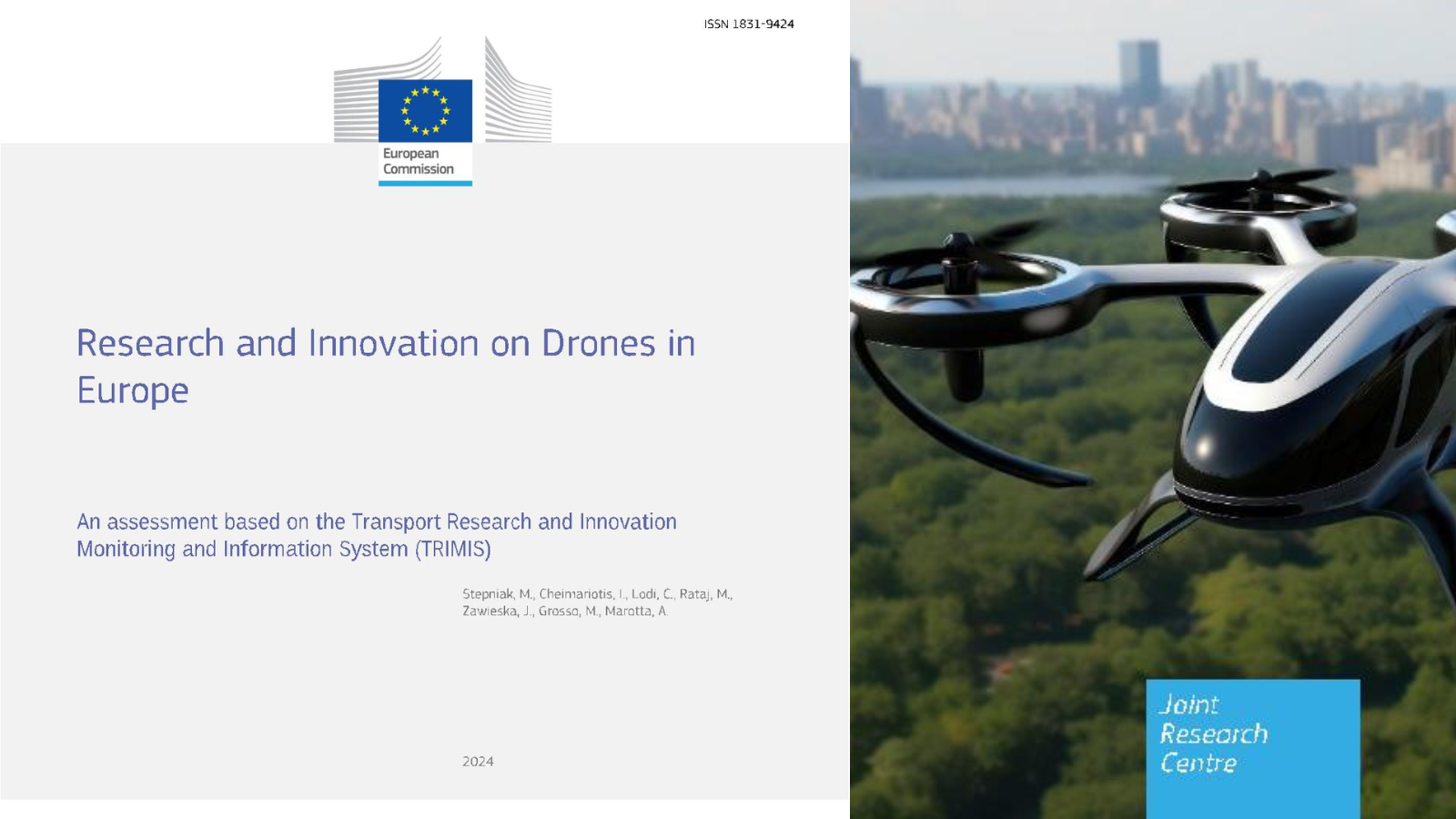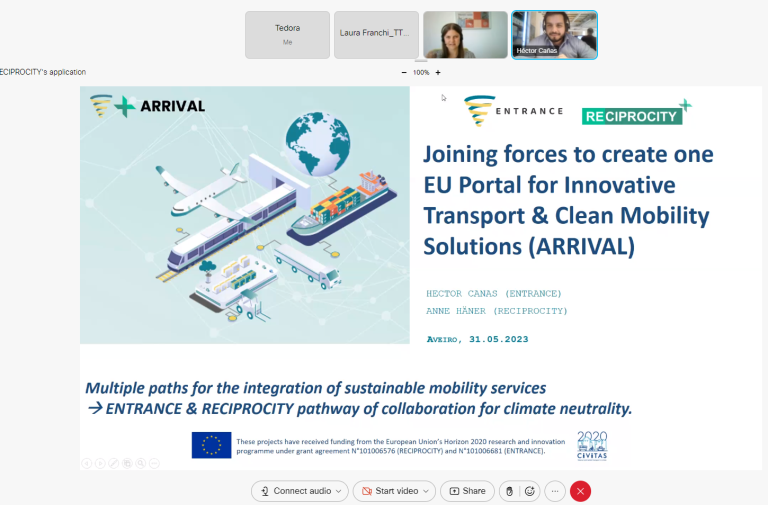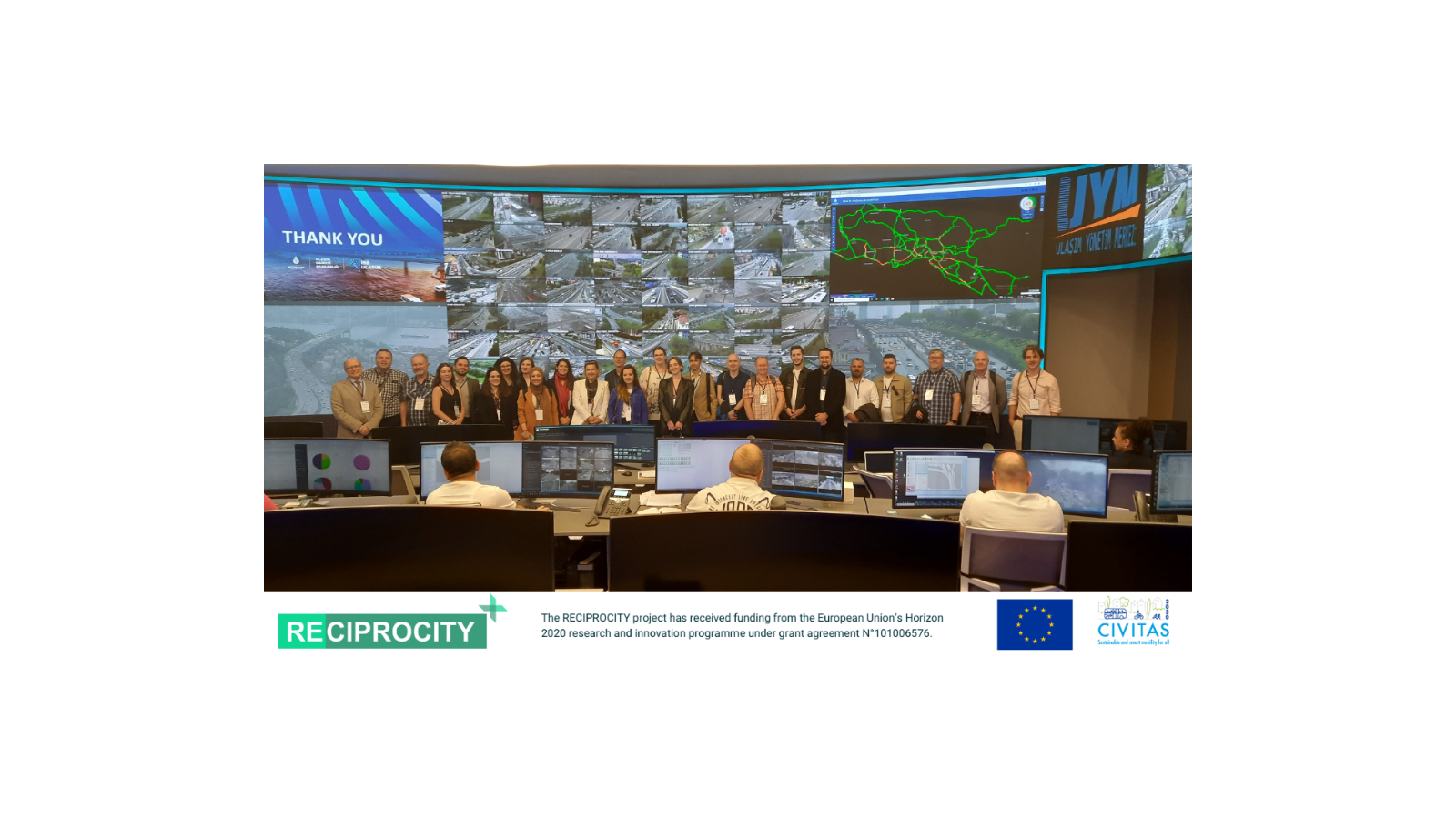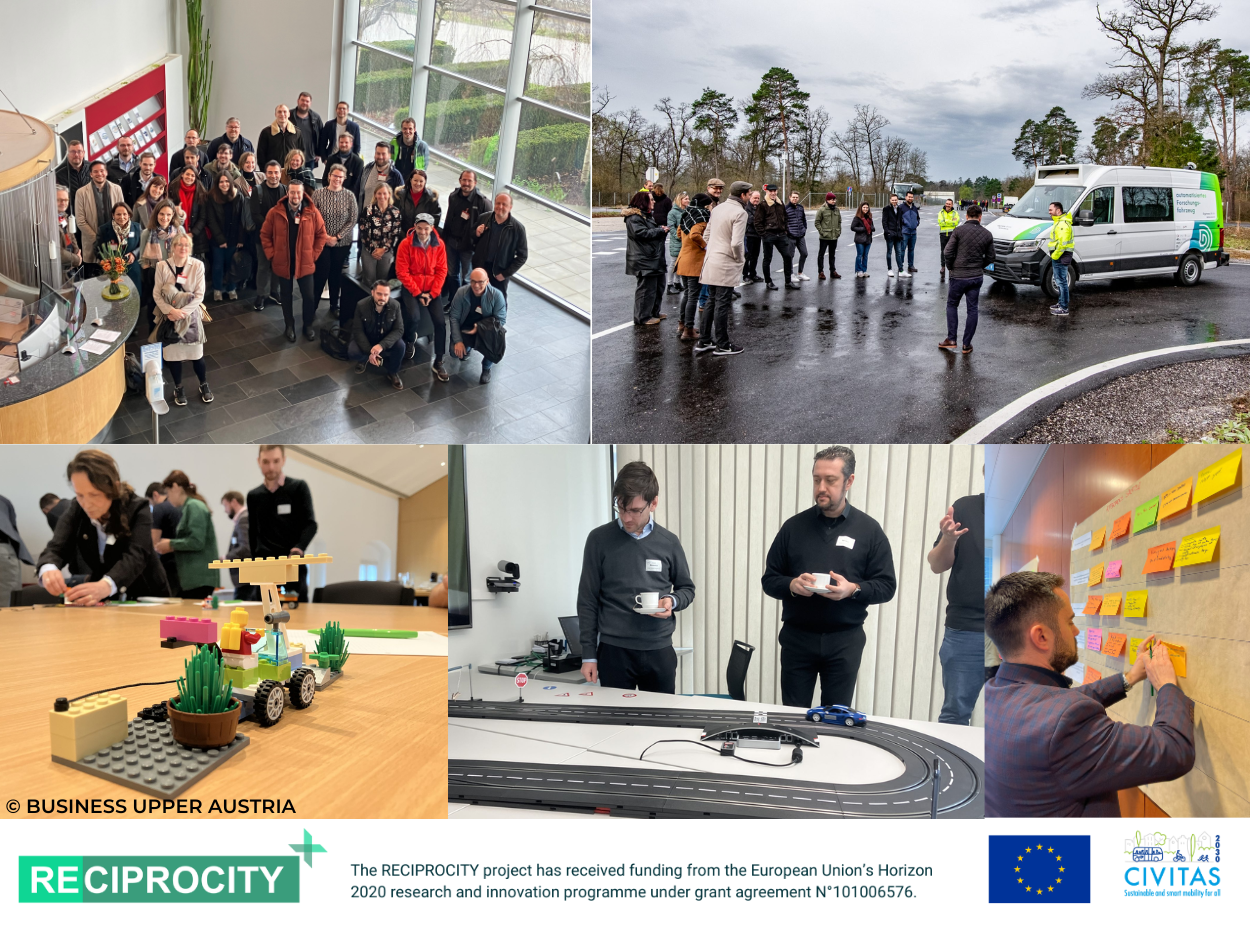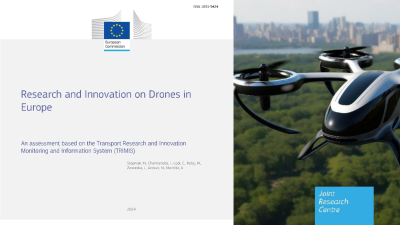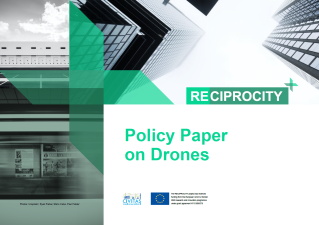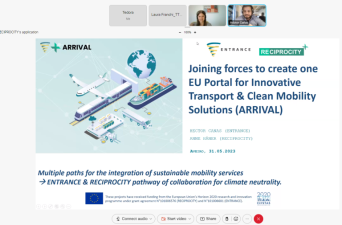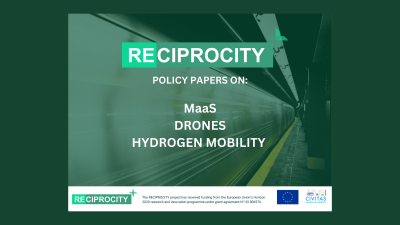Benefit & Links
RECIPROCITY implemented the Knowledge Center on its website, including training materials, a funding and legal helpdesk and several other publications.
Innovative mobility use cases have been identified and thoroughly documented, offering crucial insights for developing a catalogue of mobility best practices.
With the support of the RECIPROCITY stakeholders and valuable insights from ERRIN members, ERRIN has produced a report on regulatory and administrative requirements intending to facilitate dialogue with policy and regulation entities. Specifically directed toward local and regional authorities, European Institutions, and mobility providers, this report delivers recommendations for developing Drones, Autonomous Vehicles, Hydrogen Mobility, Mobility as a Service (MaaS), and Micro-mobility solutions.
A replication manual has been produced to guide implementing the RECIPROCITY methodology in transforming European cities into climate-resilient and connected multimodal nodes for smart and clean mobility. At the core of RECIPROCITY is a four-stage replication approach that forms the foundation of this manual. Each stage plays a crucial role in the replication process, ensuring the successful transfer of innovative mobility solutions from one city to another. The four stages are as follows: IDENTIFY, LEARN, ACCELERATE, and SHARE.
These efforts culminate with the ARRIVAL platform, the European Portal for Innovative Transports and Clean Mobility Solutions. This platform serves as both a knowledge hub, housing outcomes not only from RECIPROCITY but also from other projects, and a dynamic matchmaking tool to connect the right partners for research and development or the implementation of existing solutions.





